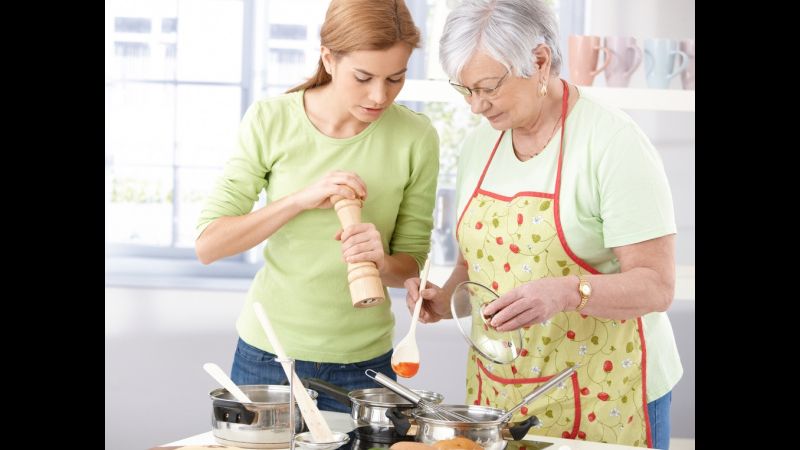Especially in today’s society, the astounding amount of different diets seem to constantly surround us. While choosing between Weight Watchers, Atkins or any of the other popular diets, it can be easy to find a diet or weight loss program that works for practically every individual.
Unfortunately, finding the right diet is more difficult for seniors. Some people may automatically assume that the elderly don’t need to diet, but maintaining a healthy diet at any age is essential, especially if following certain diet tips can help prolong one’s life.
To help clarify the optimal diets for the elderly, Dr. Ingrid Kohlstadt, a Faculty Associate at Johns Hopkins University Bloomberg School of Public Health, wrote an article featured in Time Magazine outlining nutrition advice for seniors.
Top Health Tips
These are the top five nutrition tips for older adults as explained by Dr. Kohlstadt:
- Be aware of taste and smell loss. It’s common knowledge that we progressively lose our sense of taste and smell as we get older, but it may not be as well-known that the rate at which we lose these two senses is actually a predictor of our life expectancy. Physical exams can help determine a loss of smell, and be sure to consult your doctor if your sense of taste seems diminished. To help with your loss of taste, which is responsible for recognizing thirst, drink water on a regular schedule to avoid dehydration. Flavor your food with nutritious spices to aid digestion and to add flavor to your meals without adding the extra calories. If you notice a loss in smell, be sure to regularly check your smoke detectors and the expiration dates of refrigerated foods.
- Pay attention to any dental issues. Should any dental issues arise, your overall health could be significantly affected. Some key red flags to look out for are a swollen tongue, which could be a sign of vitamin B-12 deficiency, and gum disease, which predicts heart attacks and coronary heart disease. Speak with your doctor if you are experiencing dental pain on a regular basis, as this can lead to a lack of protein intake.
- Take the ‘stomach acid test.’ To increase the amount of nutrients we absorb and to better our resistance against foodborne pathogens, the level of stomach acid dramatically drops whenever we eat. However, the amount of stomach acid production typically decreases as we age, causing a sharp increase in our protein requirements. Coffee, vinegar and bitters along with low-sodium fermented vegetables can all benefit one’s diet.
- Protect your muscles and bones. Kidney and lung functions also decrease with age, causing the body to take away bone calcium reserves. This may seem insignificant at first glance, but this calcium deprivation could lead to a loss of both muscle and bone. A diet filled with fruits and vegetables along with a daily lime juice or citrate supplement could prevent this loss.
- Repair your large intestine through diet. With age comes the depletion of colonic bacteria, which plays a role in the digestion process. According to Dr. Kohlstadt, the elderly have less than half of these microbes when compared to adults half their age. To restore these levels of colonic bacteria, hydration, prebiotics and probiotics from dietary sources are key. High amounts of Vitamin C along with magnesium and magnesium sulfate baths are also recommended.
Speak with your doctor to learn more nutrition advice for seniors. Although this is not as much of a popular topic when compared to other diets, it is just as important to promote the health of our seniors!

